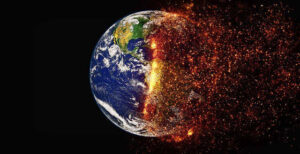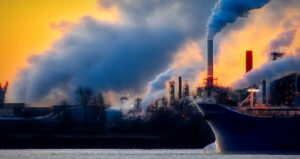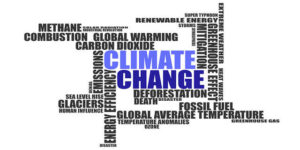Effect of Climate Change on Employment and Career: Due to the imminent consequences of climate change, most governments and industries are making a shift in their production systems and energy supply. This will have positive consequences on the planet, but probably many industries that were very lucrative in the last decades will be no more.
Jobs in high-carbon-intensive industries will be reduced or lost and new jobs will be created in low-carbon industries (for example in wind farms). On the other side, climate change consequences like heat stress, strong precipitations and droughts will also affect the workforce, especially in poorest countries. According to an ILO report, climate change consequences will lead to 80 million job losses in 2030.
Here are some examples of industries that may be the most affected by climate change on employment and career prospects:
1. Oil & gas job losses due to climate change
Fossil fuels burning is the main climate change driver of the last century. In response to this, many developed countries are implementing the use of renewables or nuclear energy. In addition to this, experts only expect oil will be available in the planet for another 47 years before we run out of this fuel. According to a UN report, between 2020 and 2030, a 6 per cent per year of fossil fuels production must be cut to prevent catastrophic temperature rises.
However, these job losses may be covered with renewable energy jobs. Image 1 shows the results of a study published by the University of Berkeley, where it is can be seen that renewables technologies are more labor intensive (require more jobs per MW generated) than technologies in the fossil fuels industry.
2. Agriculture
Agriculture will be one of the most affected industries by natural disasters caused by climate change. Currently over 1 billon people are employed in this industry, and it represents the second largest source of employment worldwide.
Climate change consequences like extreme weather events, droughts and floods will influence the agriculture industry and many of its workers. This will be even worse in developing countries, with poor infrastructure and working conditions. Many workers and farmers will also have to relocate from areas affected by sea level rises where salinization will affect irrigating waters and crops. Water availability and demand will also be an issue because of modifications in the rainfall patterns and droughts.
3. Construction jobs in poor countries
Due to heat stress and extreme weather events, construction jobs are also in risk. Workers in this industry are usually outdoors and doing physical efforts during long hours. According to different studies, construction workers (in the US) are more in risk of dying from a heat-related illness than workers in any other industry.
This situation gets even worse in poor countries with lack of infrastructure and insurance for workers. It is estimated that construction sector will account for a 19% loss of global working hours due to heat stress events.
4. Tourism
Tourism contributes to the creation of 230 million jobs worldwide (direct and indirect). This number represents the 8% of the world’s workforce, and 60%-70% of these jobs are occupied by woman. However, this sector will be very affected by climate change, especially due to sea levels rise in islands and coastal cities. Islands in the pacific are the most vulnerable to flooding due to sea levels rise than any other world region. The UN has already approved refuging for climate change victims living in pacific islands like Kiribati.
5. Coal-mining Jobs
Among fossil fuels, coal is the one that is most harmful for the environment. It has larger CO2 emissions than oil, gas and diesel. Therefore, many developed countries have stopped or merged the use of this fuel in the last decade. Countries like China are still very coal-dependent but in the US and UK the coal industry jobs have decreased significantly in the last decades due to environmental policies. In the EU, coal consumption also fell 20% between 2000 and 2014.
6. Insurance
Climate change consequences are already happening, and insurance companies will have to start addressing this issue in their agenda. Climate change is likely to put in risk properties and client’s goods. Therefore, stakeholders will start to demand that insurance companies address specifically these risks in their contracts and bring solutions to mitigate their effects. On one side, these events will increase investments from the companies which could end up not being profitable for them. But also a lack of response could affect the insurance company’s credibility and reputation. This is the Effect of Climate Change on Employment and Career.
7. Beverages
Many companies like Coca-Cola, PepsiCo and Nestle started to address the risk that lack of water due to droughts represent. Climate change effects cannot be accurately predicted regarding food safety, but they will have an impact in crops productivity due to water availability in areas where this resource will be most needed.
In a report emitted by the nonprofit Ceres, 75% of the food & beverage companies evaluated showed some form of risk assessment due to lack of water. 85% of the companies addressed water as a material risk in their financial state. In case these risks become a reality, it could lead to many jobs being endangered in these industries. This is the Effect of Climate Change on Employment and Career.
8. Fishing
Due to climate change disasters, fishing industry could be at great risk. Temperature changes, sea levels rise and ocean acidifications are some of the changes that may alter many fish habitats and therefore put their lives in risk. For example, habitat losses for salmon and trout could be as high as 17% by 2030 if global warming effects are not reversed. This is the Effect of Climate Change on Employment and Career.
9. Skiing
Like many other outdoor sports, skiing is a sport very high-dependent on weather conditions. It requires snow precipitations in the winter and low temperatures during the ski season. However, climate change is expected to make winters warmer and shorter, which could negatively affect this industry. According to a research from the University of Waterloo, two thirds of European ski centers may be forced to close by 2100. This is the Effect of Climate Change on Employment and Career.
10. Financial services
Because of all the losses mentioned before, the financial system may also be in risk due to climate change consequences. Physical risks could make prices fall leading to an increase in uncertainty. Also the transition to a low carbon economy could have a negative effect in the financial system, that highly depends in intensive carbon industries activities. This is the Effect of Climate Change on Employment and Career.
-Belén Silva
Effect of Climate Change on Employment and Career
References
Kammen, D.M., Kapadia, K., Fripp, M., 2006, Putting Renewables to Work: How Many Jobs Can the Clean Energy Industry Generate? Report of the Renewable and Appropriate Energy Laboratory, University of California, Berkeley, April 2004 (corrected January 2006).
ILO, The employment impact of climate change adaptation, 2018.
OECD Studies on water, Climate Change, Water and Agriculture
Payel Acharya, Bethany Boggess, Kai Zhang, Assessing Heat Stress and Health among Construction Workers in a Changing Climate: A Review, Environmental Research and Public Health, 2018.
FAO Water reports, Climate change, water and food security
Image by Gerd Altmann from Pixabay





